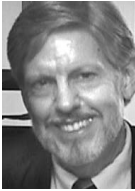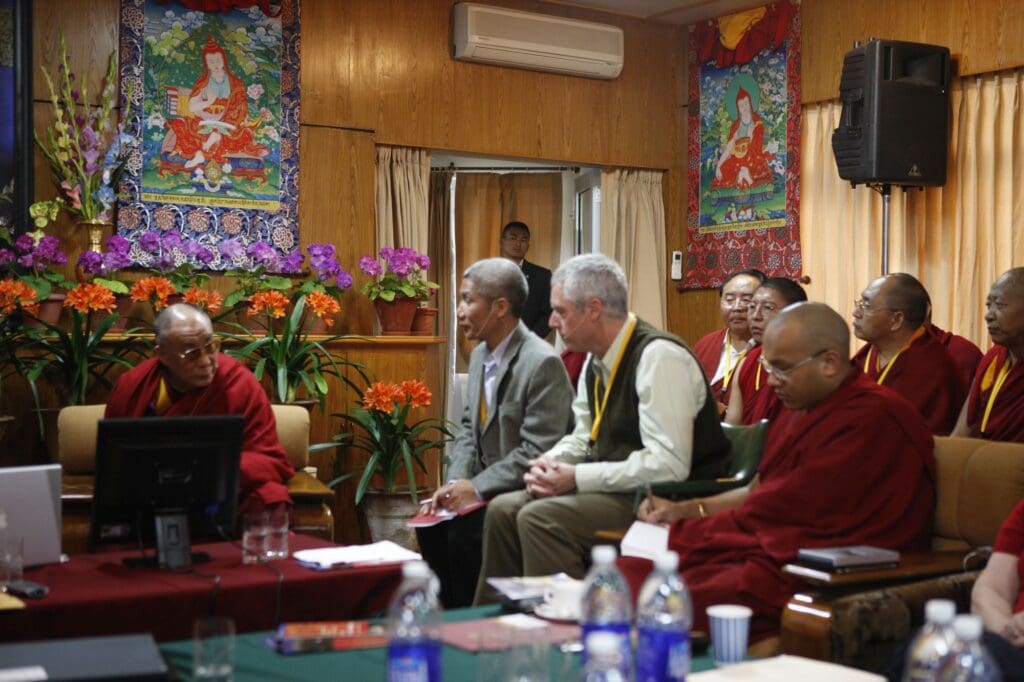Filmed during Mind & Life Institute’s “Mind & Life XVIII: Attention, Memory, and Mind” on April 6-10, 2009.
Multi-tasking, Meditation, and Contemplative Practice
SPEAKER: David Meyer
The subjective phenomena commonly experienced by novice and intermediate practitioners during Shamatha meditation and other related types of contemplative practice suggest that they may be understood in terms of theoretical concepts and empirical results drawn from scientific studies of human multi-tasking. Perhaps practitioners routinely engage in multi-tasking during their meditative sessions; while one of their tasks involves doing the meditation itself, another probably involves performing “the task of life”, which is perpetually underway and entails many on-going mental activities such as retrospecting, evaluating, imagining, planning, daydreaming, self monitoring, and so forth. Becoming a skilled practitioner who is better able to maintain focused attention, to dispel the fog of mind wandering, and to transcend mental distractions would then depend on developing new task-scheduling strategies and mechanisms of cognitive control whereby meditation evolves to be a primary task and “the task of life” ceases to be even a background secondary task.
What have cognitive psychologists and neuroscientists discovered about the nature of multi-tasking relevant to these considerations and prospects? Specifically we will consider the inefficiencies of multi-tasking, the components of human information processing that underlie them, the roles played by alternative types of scheduling strategies, the contributions due to various types of working memory, and the sources of individual differences in these related realms. It will be explained how this analysis may dovetail closely with some classical Buddhist accounts concerning stages of skill acquisition in Shamatha meditation, and with principles of optimal “cross-training” in a variety of contemplative practices to maximize the rate at which meditative skill is attained. Questions to be discussed include: do any Buddhist sutras or other scriptures discuss the topic of multi-tasking? If so, what do they say about it? Do any of the major traditional types of Tibetan Buddhist meditation require or encourage multi-tasking while they are being practiced? Can certain types of meditation enable people to become better at multi-tasking? If so, in what ways?
The Buddhist Contribution to First-Person Cognitive Science
SPEAKER: B. Alan Wallace
The primary methods of the modern cognitive sciences for investigating the mind are interrogation of others concerning their subjective experience, behavioral studies, and brain research. All these methods are indirect methods for understanding the mind by way of its verbal and behavioral expressions and neural correlates. Although the direct observation of mental states and processes was prevalent in late 19th-century psychology, introspection has been marginalized since the early 20th century. Nevertheless, without relying on first-person report, studies of behavior and the brain alone would yield little if any insight into the nature of mental phenomena. While Buddhism lacks any quantitative behavioral science or neuroscience, it has developed highly sophisticated methods of introspective inquiry based on the refinement of attention and metacognitive skills. These methods allegedly result in reliable, replicable observations regarding the origins, nature, and potentials of consciousness, as well as the inner causes of mental suffering and genuine happiness. There is therefore a potential for these methods of refining and utilizing introspection to be integrated into the scientific study of the mind in ways that may enrich both Buddhism and modern science. Questions to be discussed include: can introspec tionism complement more “third-person” views in the science of meditation? What are some of the challenges and promises of such an integration?
PANELISTS:
His Holiness the 14th Dalai Lama
Adele Diamond
Shaun Gallagher
Rupert Gethin
Amishi Jha
Thupten Jinpa
Elizabeth Phelps
Cliff Saron
Anne Treisman
Participants




